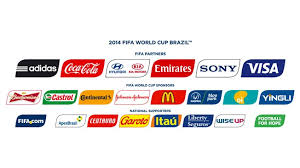January 23 – FIFA second-tier sponsors Castrol, Continental and Johnson & Johnson have declined to renew sponsorship contracts for the 2018 World Cup, each was on a one World Cup cycle deal.
FIFA responded to the media furore pointing out that sponsors opting not to renew is normal in the sports business.
According to FIFA marketing director Thierry Weil: “Rotations at the end of a sponsorship cycle are commonplace in the sports industry. It is natural that as brands’ strategies evolve they reassess their sponsorship properties.”
Five of FIFA’s top 14 commercial partners have completed their sponsorship cycles in the last six months, whilst Gazprom has signed a new top-tier deal and Samsung and Qatar Airways are anticipated to step in as replacements for Sony and Emirates.
According to Weil: “As in previous FIFA World Cup cycles, we are now in advanced negotiations with a number of companies related to sponsorship agreements in all three of our categories. Indeed, FIFA expects there to be more sponsors for the 2018 than for the 2014 World Cup with 20 third-tier sponsors on regional deals worldwide instead of eight national sponsors in the host country.”
“Of the eight second-tier sponsors, Budweiser and McDonalds already renewed for 2018.” and Weil said that: “We expect interest to grow even more as the Confederations Cup 2017 and 2018 World Cup draw closer.”
The sponsor withdrawal has been linked with the recently launched New FIFA Now campaign and promises to pursue sponsors to pull out of their involvement as, the campaigners say, FIFA has become a ‘toxic’ brand.
Unfortunately for the campaigners the evidence on the brand is somewhat contrasting to their claims and the end of the sponsors’ contracts was some time before the pressure group started.
Marketers point out that multi-national brands who may wish to campaign around the World Cup in Brazil will not necessarily be the same as those who wish to be associated with the World Cups in Russia or Qatar, but the incontrovertible fact is that for brands and media companies, the FIFA World Cup delivers.
There are legitimate concerns over FIFA reform, and it is impossible for football to ignore the current anti-Russian campaign in the West or concerns over working conditions in Qatar, the loss of three sponsors does little to prove English conservative MP Damien Collins’ assertion that “FIFA is a toxic brand” or that “I think that’s why companies who care about their reputation don’t want to be considered with it.”
It remains to be seen if the attempts by Collins and ‘New Fifa Now’ have any real chance of dissuading sponsors from supporting the body which organises the world’s most popular sporting event. Attempts by the group to engage with FIFA partners Coca-Cola, Adidas and Visa, and World Cup sponsor McDonald’s reportedly apparently elicited no response and whether future attempts enjoy more success will likely depend as much on geopolitical considerations as any genuine concerns over lack of transparency in FIFA’s administration.
Contact the writer of this story at moc.l1743649500labto1743649500ofdlr1743649500owedi1743649500sni@r1743649500ebab.1743649500kram1743649500

